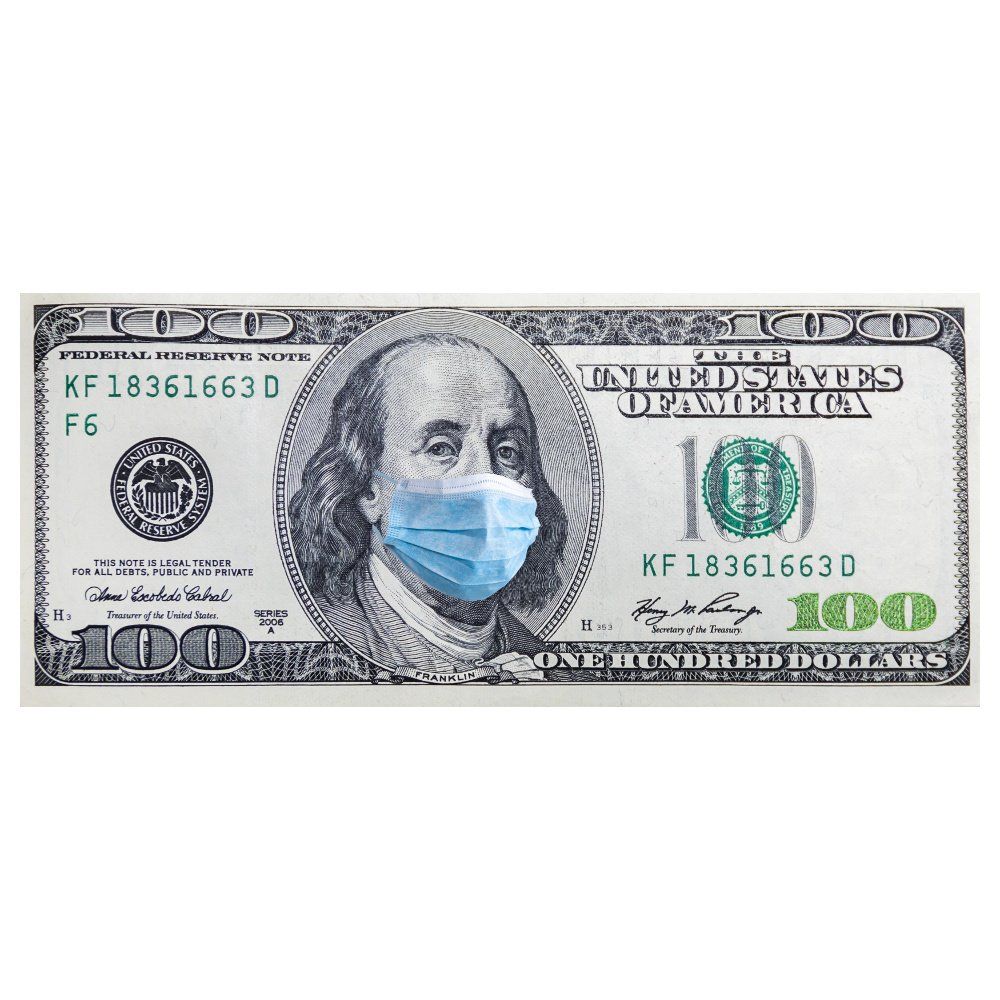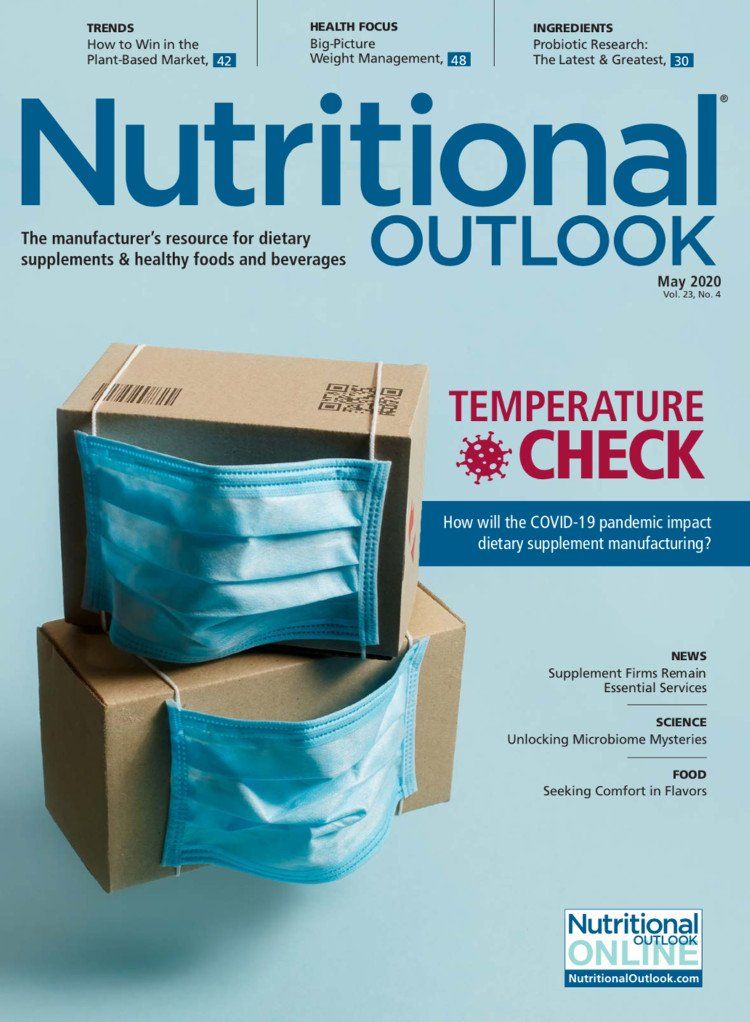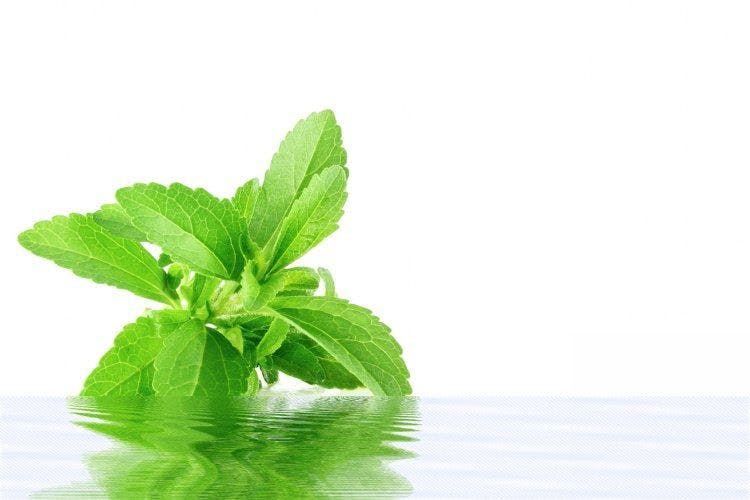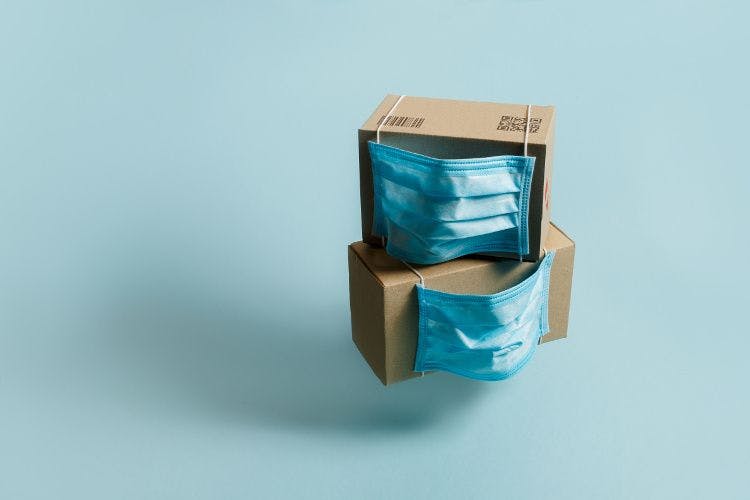Dietary supplement sales skyrocket during coronavirus pandemic
Which dietary supplements are likely to perform well moving forward, and which could see sales falling in an impending recession? We asked IRI and other industry leaders.
Photo © AdobeStock.com/Anton Petrus

Dietary supplement market sales are skyrocketing during the COVID-19 pandemic. Nutritional Outlook spoke to market researcher IRI (Chicago) and other supplement leaders about what the supplements market can expect moving forward, including during an impending recession.
Supplement Sales Could Outperform Last Recession
“What we are seeing now is unprecedented growth with COVID-19,” says Joan Driggs, vice president of thought leadership and content for IRI. IRI tracks U.S. multioutlet sales, including in mass market, grocery, drug, and convenience stores (but excluding specialty vitamin stores such as The Vitamin Shoppe). “If you’re looking at the vitamin/minerals supplements market right now, it’s very positive,” she says.
Historically, dietary supplements generally sell well, even during times of recession, as consumers look towards supplements as an affordable way to maintain their health. During the 2008 recession in the United States, for instance, dietary supplement sales grew. “The market did do well in the last recession,” says Driggs. “I think they were up 5% in the 52 weeks through June 2009, which is a pretty healthy leap.”
The current COVID-19 pandemic could see supplements perform even more strongly than they did during the last recession, says Driggs. This largely has to do with the fact that this pandemic is entirely centered on health and disease.
“There are similarities, of course, going into a recession, but COVID-19 makes everything different because people are really, first and foremost, concerned with their physical health and the physical health of their loved ones,” Driggs says. “I think that while consumers will be concerned about their financial health, certainly, some of these CPG categories are really recession proof.”
Driggs shares IRI data showing how supplement sales shot through the roof during the recent weeks of the COVID-19 pandemic.
In terms of supplement sales overall, first she looks at the past year's sales, noting “In the 52 weeks ending March 8, 2020, the total market was up more than 6%. That’s a pretty healthy leap for the category.” Then she drills down to the one-week period ending March 8, 2020, during which coronavirus concerns in the U.S. began to scale. During that week, she says, sales growth for overall dietary supplements skyrocketed to more than 35%.
By purchasing supplements, consumers take comfort in feeling like they are supporting their health in a time of great uncertainty.
“Vitamins and supplements, right now in particular, are viewed as a small measure of control that people have over their lives, in a really uncertain time,” says Driggs. “There’s a lot of anxiety. There’s a lot of the unknown. People don’t know how this is going to shake out. They don’t know how long it will take to shake out. So, they’re looking for a little bit of control and taking things like vitamins and supplements to maybe shore up their immunity or keep themselves healthy. It’s what they’re doing to help keep themselves safe.”
And, indeed, while supplements can’t treat or prevent disease, they can help support well-being. “Supplements are not intended to diagnose, treat, cure, or prevent disease. This does not mean that during a time of crisis like this, they can’t play a role in supporting overall health and wellness,” says Brian Tanzer, manager of scientific affairs for The Vitamin Shoppe.
He continues: “People may not have access to nutritious foods for one reason or another, so supplements can help fill gaps in their nutrition. If a person does not get adequate nutrition through diet and/or supplementation, their immune system can be further compromised. The stress of the COVID-19 pandemic can further deplete essential nutrients that the body needs to maintain health. So, although supplements have no direct effect on the COVID-19 virus itself, they can certainly help support overall health and wellness during this very stressful time.”
The Winners
Already, we’ve seen sales of certain supplements skyrocket like never before. Unsurprisingly, many of these supplements target immune health and wellness.
Ingredients like vitamin C, vitamin D, zinc, and elderberry-an immune-health botanical ingredient that already saw soaring sales last year-are what Driggs says can be considered “the beneficiaries of the current situation.” Their sales growth, she says, “will make your head swim.”
If elderberry sales growth was impressive in the last year, sales were sent into the stratosphere in recent weeks: Elderberry sales were up 170% over the past year, but during the one-week period ending March 8, 2020, sales were up a whopping 415%.
The same impressive growth is true for zinc, which saw 15% sales growth during the 52 weeks ending March 8, 2020-but which saw sales skyrocket 255% during the one-week period ending March 8, 2020.
Vitamin D, “the sunshine vitamin,” also continues to gain attention as more people are confined indoors. Driggs says that sales during the one-week period ending March 8, 2020, grew 22%.
Even multivitamins are benefiting as consumers look for general ways to boost their health. For instance, says Driggs, adult multivitamins are already a $1.6 billion market in the markets IRI tracks. Adult multivitamin sales grew 1% in the past year-“1% of $1.6 billion is a lot,” Driggs points out-but sales growth accelerated to 23% in the one week ending March 8, 2020.
Even children’s multivitamin sales are growing, Driggs says, as parents look to keep their children healthy during this time. “Child multivitamins-again, a much smaller category-are up more than 2% for the year, and in that one-week period when people were really going out and trying to arm themselves, that category was up 47%,” she says.
Driggs says multivitamins are among the supplements that are “in it for the long haul.” She notes: “People are trying to protect themselves and protect their children.” In order for a supplement to be successful at this time, “it has to make sense,” she adds. “There’s not a magic bullet out there. It’s eating right, getting exercise, getting good sleep, trying to ease your anxiety-and multivitamins are a good bet just in case you have some kind of deficiency in your diet.”
Steve Mister, president and CEO for the Council for Responsible Nutrition (Washington, DC), also says there is rising consumer interest in supplements. “We’ve already seen an increased interest in supplements since coronavirus came to the U.S., and there are a number of reasons: some people are using products that are immunity boosting because they want to really protect their immune function and build their immune function. Other people are using multivitamins and their daily vitamin and minerals because they just want to be sure that they’re getting all of the nutrients and that their body is going to perform as best it can under all of this stress. There are other products, like sleep products, like melatonin, that are doing very well because, again, people are reading that sleep contributes to a strong immune function, and so they want to be able to get a good night’s sleep, and they are incredibly stressed and fearful when they read about what’s going on in the world right now.”
Possible Dips: Sports Nutrition?
Some supplement categories could see sales declines. Some point to sports nutrition sales as being vulnerable in light of the fact that many state governments mandating social distancing have required health clubs and gyms to close.
“I think sports nutrition is going to have to do a little bit of reinventing itself,” says attorney Kevin Bell, partner at Arnall Golden Gregory LLP (AGG; Washington, DC).
Daniel Fabricant, PhD, president and CEO of the Natural Products Association (Washington, DC), says, “I’m concerned about possibly sports nutrition, with gyms closed. With gyms closed, they may suffer some losses there. We hope people find a way to stay healthy and continue their exercise regimens, even during the crisis. That’s very important-that they continue to do some form of activity.”
Bell adds: “Here’s something else you’re going to see: everybody is going to start claiming that everything is for health and wellness and will boost your immune system.”
Shopping Behaviors
It’s no surprise to imagine that in this time of social distancing, online supplement sales will further skyrocket. Compared to the last recession, online sales will be even more robust-and could be further extended via subscription ordering.
“This is different from the past recession-e-commerce is so much bigger, and e-commerce helps with social distancing,” says Driggs. “As part of e-commerce, there’s auto-replenishment. So, if people get into a groove, this could become a habit, and they’ll just stick with it, particularly if they stay healthy throughout COVID-19. They’re going to look at it as either: 1) this has been a positive change, or 2) just a positive part of their routine that they’ll just keep going.”
Supplement purchasing will not be the first purchases consumers are likely to cut during a recession, she adds. “As people dig in more into the recession, they’ll be more likely to cut out other things.” For instance, she says, even prior to the current pandemic, consumers were reducing the amount of money they spend on dining out, health clubs, nail salons, and hair salons. During the recession, she says, “Those could all be argued as discretionary expenses that are no longer on the table.”
But consumers are likely to keep their supplements, Driggs says. “People might be feeling that, ‘Well, you know what? I’m already cutting out a lot of expenses that I had before. This is something that’s pretty critical to my current state of well-being, so I’m going to stick with it.’”
Mark LeDoux, chairman and CEO, Natural Alternatives International (Carlsbad, CA), says: "For the first time in decades, I have seen 'mainstream' TV doctors extolling the virtues of taking zinc and vitamin C and vitamin D supplements to help tune up the human immune system. They are also extolling the virtues of increasing fruit and vegetable consumption and getting adequate fluids and antioxidants in your system. I very much doubt that this industry will be in a recession anytime soon."






















HHS announces restructuring plans to consolidate divisions and downsize workforce
Published: March 27th 2025 | Updated: March 27th 2025According to the announcement, the restructuring will save taxpayers $1.8 billion per year by reducing the workforce by 10,000 full-time employees and consolidating the department’s 28 divisions into 15 new divisions.
HHS announces restructuring plans to consolidate divisions and downsize workforce
Published: March 27th 2025 | Updated: March 27th 2025According to the announcement, the restructuring will save taxpayers $1.8 billion per year by reducing the workforce by 10,000 full-time employees and consolidating the department’s 28 divisions into 15 new divisions.
2 Commerce Drive
Cranbury, NJ 08512
All rights reserved.

